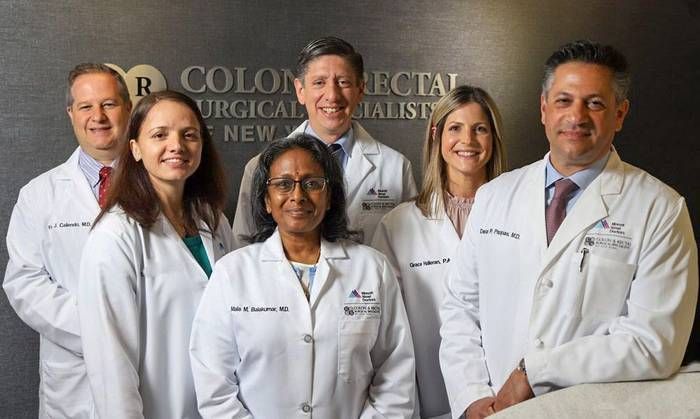
BY DEAN PAPPAS M.D.
Any time you experience a possible intestinal blockage, it’s important that you have the matter addressed right a way. Untreated intestinal blockages can lead to worsening abdominal discomfort and serious health problems. At Colon & Rectal Surgical Specialists of New York, our team offers adavanced colorectal treatments for problems affecting the digestive system. With six locations in New York, we will be able to offer you the relief you need.
Dysmotility is one possible cause of intestinal blockages. Let’s cover the basics of dysmotility and then consider various treatment options available to patients.
About Dysmotility
Dysmotility refers to a muscle disorder that affect the digestive tract. The condition negatively affects the strength, coordination, and speed of these muscles as they attempt to digest and pass food through the body.
Focusing on small intestine dysmotility, regular muscle contractions help move the food along in the digestive process. When the muscles do not function as they should, this can lead to food getting trapped in the small intestine.
Causes of Dysmotility
There are two reasons why dysmotility occurs:
- Myopathy – In these instances, the problem is the result of weakness and/or abnormalities in the muscle of the intestines
- Neuropathy – In these situations, problems and abnormalities in the nerves that control intestinal muscles lead to dysmotility
Myopathy and neuropathy may be caused by genetics, inflammatory diseases affecting the digestive tract, and other medical illnesses such as thyroid disorders, Parkinson’s disease, diabetes, and lupus.
Signs and Symptoms of Dysmotility
The most common signs and symptoms of dysmotility include:
- Abdominal pain
- Bloating
- Cramping
- Constipation
- Diarrhea
- Nausea
- Vomiting
Because of poor nutrient absorption, patients may also experience symptoms of malnutrition.
Changes to Your Diet
One of the least invasive ways to address intestinal dysmotility is to have patients alter their current diet. This will help address the obstruction and ensure that patients are able to absorb nutrients properly again. Patients should avoid carbonated beverages and any foods that are difficult to digest. Meal supplement shakes or drinks may be recommended. Be mindful of any food items that cause intestinal discomfort.
Medications for Dysmotility
If there is a blockage in the intestine that needs to be expelled, doctors may recommend that patients take laxatives. This will help soften and propel any blockages in the intestinal tract and allow patients to digest food in a more normal manner. Additional medications may be recommended as needed.
Hospital Treatment for Dysmotility
For serious intestinal obstructions, it may be necessary for patients to visit the hospital. This will allow doctors to assist with decompression of the digestive tract. Patients may be fed through an IV to address nutritional deficiencies. Doctors may recommend additional options for at-home care and management.
Surgery for Dysmotility
Surgery is rarely recommenced to treat or manage dysmotility unless the problems are frequent and/or severe. In these cases, the surgery will resection the intestinal tract so that muscle contraction errors are no longer and issue. Other options for treatment and management will typically be tried before resorting to surgical resection
Learn More About Treating Dysmotility
To learn more about ways you can treat and manage dysmotility, be sure to contact an experience colorectal surgeon. The team at Colon & Rectal Surgical Specialists of New York is here to help. You can reach our offices in Garden City and Smithtown by phone at (516) 494-3027, our Jamaica office at (347) 349-3348, our Manhasset office at (516) 219-8558, our Melville office at (516) 219-8587, and our Richmond office at (718) 305-4032.


